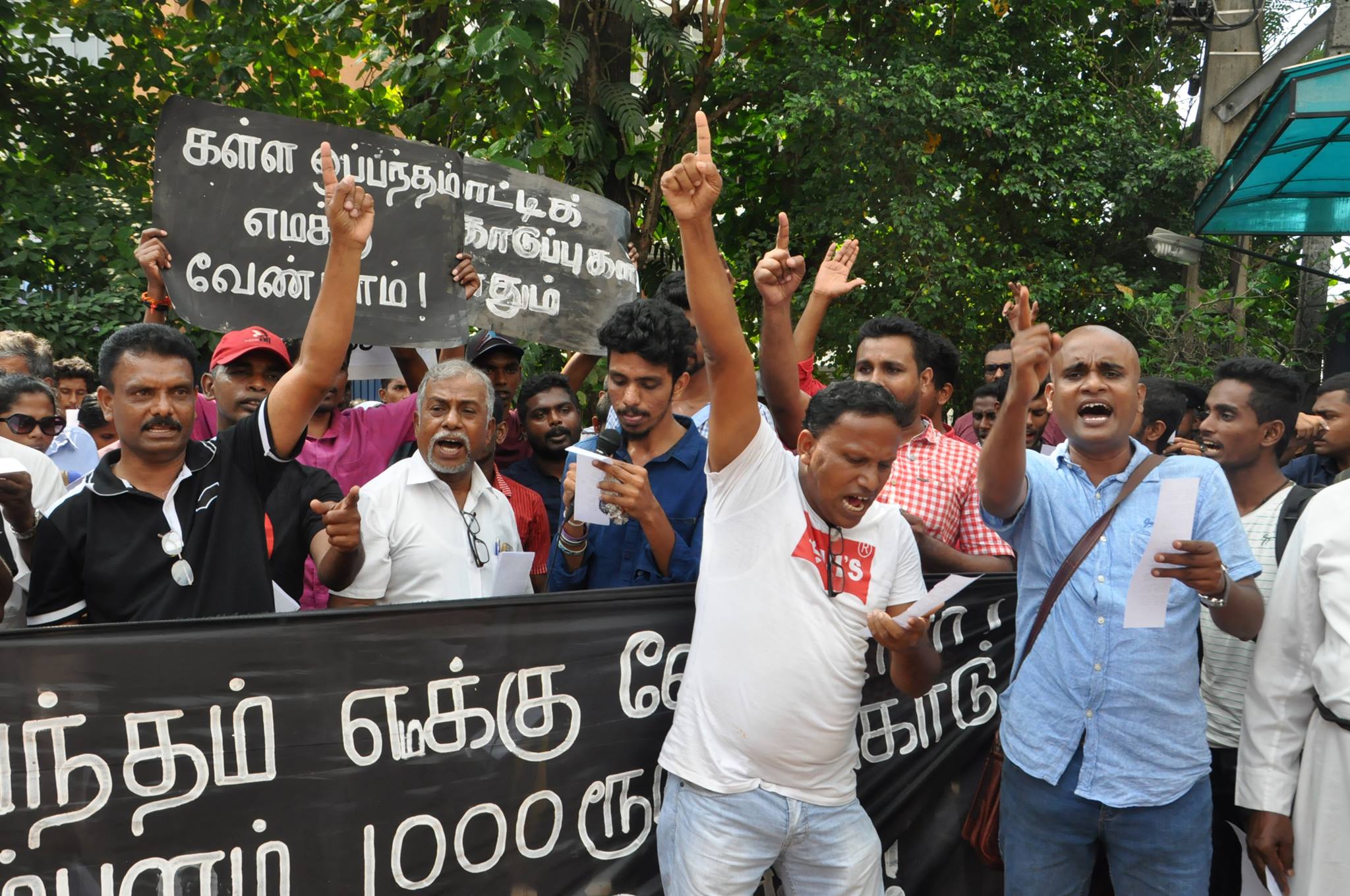Sri Lankan plantation workers, under the banner of One Thousand movement, rejected the negotiations between the plantation companies and the mainstream trade unions, which agreed on a 40% wage rise. Calling the new collective agreement on wages a “sellout,” the workers demanded for a 100% pay rise. The plantation workers, who belong to the poorest sections of the Sri Lankan working class, have been struggling to increase their daily wages.
On January 28, almost 1,000 estate workers gathered in Hatton, the largest town in the Central Hills district, raising slogans and denouncing the union leaders. The protesting workers demanded nothing short of LKR 1,000 (USD 5.61) as daily wage. Placards of the workers read: “Our Blood. Our Tears. Our Sweat. Our Request. 1,000 per month.”
Even since the plantation workers were brought to the country by the British, they have been working under dreadful conditions. The basic daily wage of plantation workers is LKR 500, less than $3.
The agreement between the Employers’ Federation of Ceylon and the trade unions representing Regional Plantation Company employees would provide workers a daily wage of LKR 700 (USD 3.92). However, the workers said that getting a remuneration varies depending on the company’s profit. As of now, more than 60% of the estate workers are organized in two major unions, Ceylon Workers Congress and Jathika Sevaka Sangamaya. Workers said that the leaders of the two unions entered into agreements with the companies and the government for their own benefit rather than the benefit of the workers.
“As per the revised agreement, a daily basic wage of LKR 700 plus a Price Share Supplement (PSS) of LKR 50, totalling 750, is the only remuneration a worker would receive based on the plucking norm,” general secretary of the Planters’ Association, Lalith Obeyesekere, claimed.
The president of the Abbotsleigh Estate Workers Action Committee, P. Suntharalingam, called this agreement a sellout and said that “workers must learn the lessons of this betrayal by the trade unions”. Pointing out that this agreement happened at the prime minister’s house, he added that it “means government must have organized this deal”.
Activists have repeatedly maintained that workers attend their plantation 24 days a month and earn a paltry LKR 140 attendance allowance. A LKR 60 productivity incentive is often paid. “Workers are allocated a plot of land with around 1,000 tea bushes. The workers only receive income from the plot after company profits and expenses have been deducted,” said the activists.
Last year, workers went on a strike against low wages for three months. Almost 100,000 plantation workers launched an indefinite strike in December 2018 to press their demand. In October 2018, thousands of tea garden workers held a demonstration at the Galle Face Green in Colombo against low minimum wages and demanding an end to slave-like living conditions.





